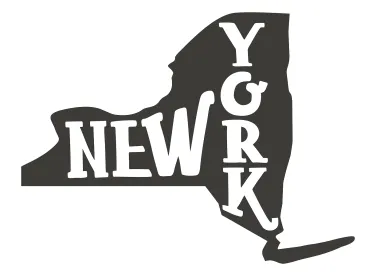Almost all states promulgate regulations regarding “diligent efforts” that licensed excess line brokers must perform while wishing to offer permissible coverage from unlicensed insurance companies in that state’s market, when no coverage or an insufficient amount of insurance is available from an authorized insurer within the state.
Unauthorized insurers are typically not subject to certain provisions of the state’s insurance laws and regulations, and state regulators typically do not examine or oversee the operations of unauthorized insurers. The “diligent effort” requirement usually entails obtaining three declinations from three authorized insurers affirming that the authorized insurers will not write the particular excess line risk.
To meet the diligent effort requirements in New York, currently, an excess line broker must among other things, obtain three declinations from authorized insurers (unless the superintendent of New York Department of Financial Services (DFS) determines that another number of declinations is appropriate). The broker must then submit, to the excess line association, an affidavit affirming, among other things, that following the “diligent effort,” the desired insurance could not be procured from authorized insurers, based on the three declinations received.
NY Comp. Codes R. & Regs. tit. 11 § 27.3(g)(1) exclude certain types of excess line coverage from the diligent effort requirement (typically called an “export list”). Examples of coverages on the “export list” are: amusement parks and carnivals, certain crime coverage, and auto racing and automobile race track liability. The Insurance Law provides for scenarios where compliance with the affidavit requirement is also excused, such as, when the affidavit is accompanied by the affidavit of another broker involved in the placement affirming that, after diligent effort by the affirming broker, the required insurance could not be procured from an authorized insurer which the affirming broker had reason to believe might consider writing the type of coverage or class of insurance involved. See Ins. Law § 2118(b)(3)(A). Moreover, the diligent effort requirement does not apply where the excess line insured is an “exempt commercial purchaser” e.g., a large company with a professional risk manager considered a sophisticated buyer — and certain other facts are present, pursuant to Insurance Law § 2118(b)(3)(F).
Recently State Senator Neil D. Breslin (D) introduced legislation in the New York State legislature (the full version of which may be found here) that provides an additional exception from the diligent effort requirement. The bill, A05253, generally would excuse failure to perform diligent efforts when a retail producing insurance broker seeks to procure or place commercial lines insurance through an unaffiliated wholesale excess line insurance broker. Such an exception currently does not exist in the New York Insurance Law or regulations of the DFS. The bill provides, among other things, that retail and wholesale brokers are “unaffiliated” when a broker “does not control, is not controlled by, or is not under common control with the other.” It defines “control” as “directly or indirectly or acting through one or more other persons own[ing], control[ing], or ha[ving] the power to vote twenty-five percent or more of any class of voting securities of the other, or [ ] control[ing] in any manner the election of a majority of the directors or trustees of the other.”
This month the bill was unanimously passed in the State Senate’s Insurance Committee (by a vote of 10-0) and unanimously passed by the State Senate (by a vote of 61-0). The bill now sits before the State Assembly. If enacted, the proposal will allow more flexibility in procuring and placing excess line coverage in New York and reflects the reality of excess line business. Indeed, the Excess Line Association of New York (ELANY) — comprising licensed excess line brokers — characterized the bill as providing “important, common-sense changes to the excess line diligent effort requirement that would benefit both commercial insurance consumers and brokers.”





 />i
/>i
